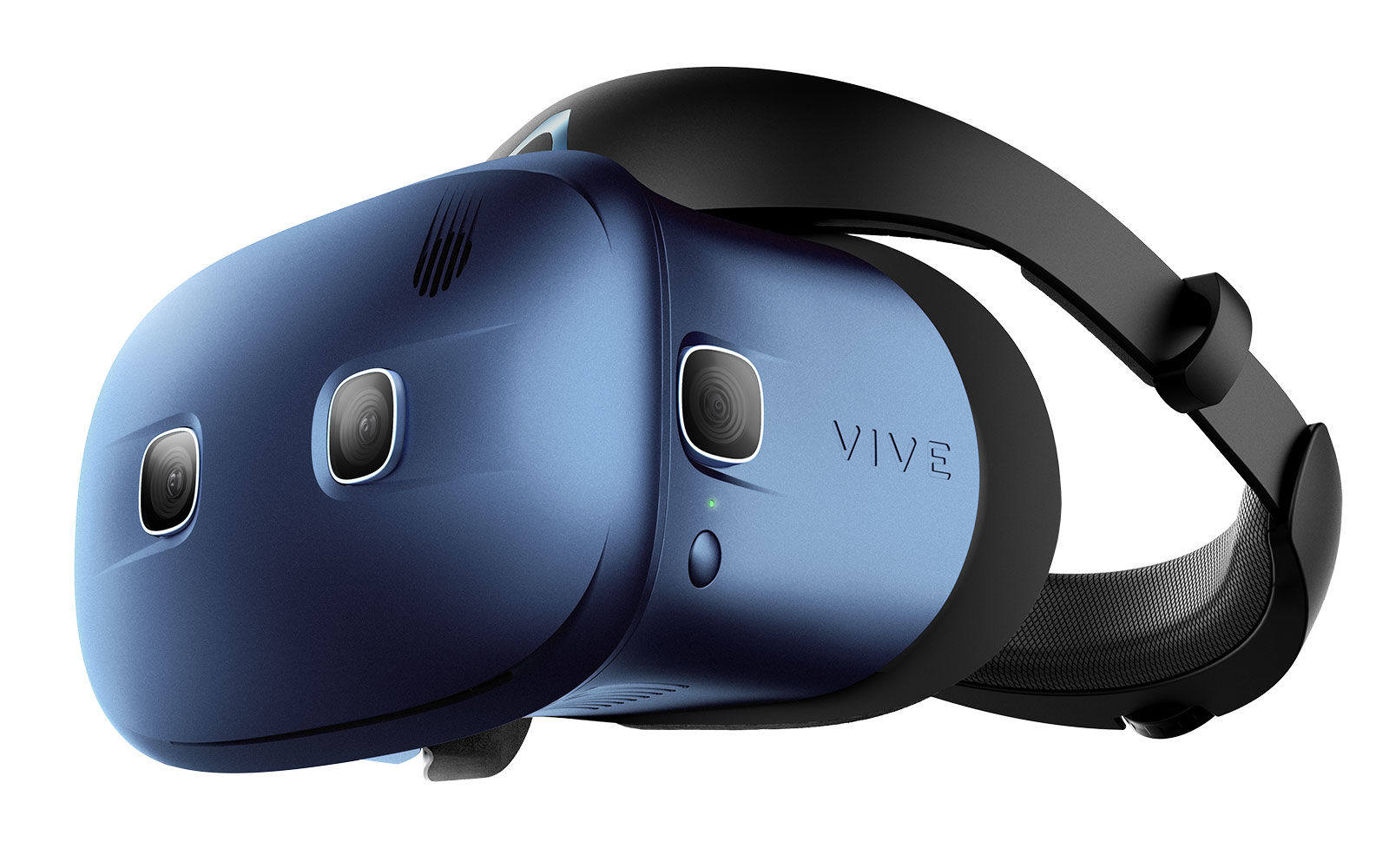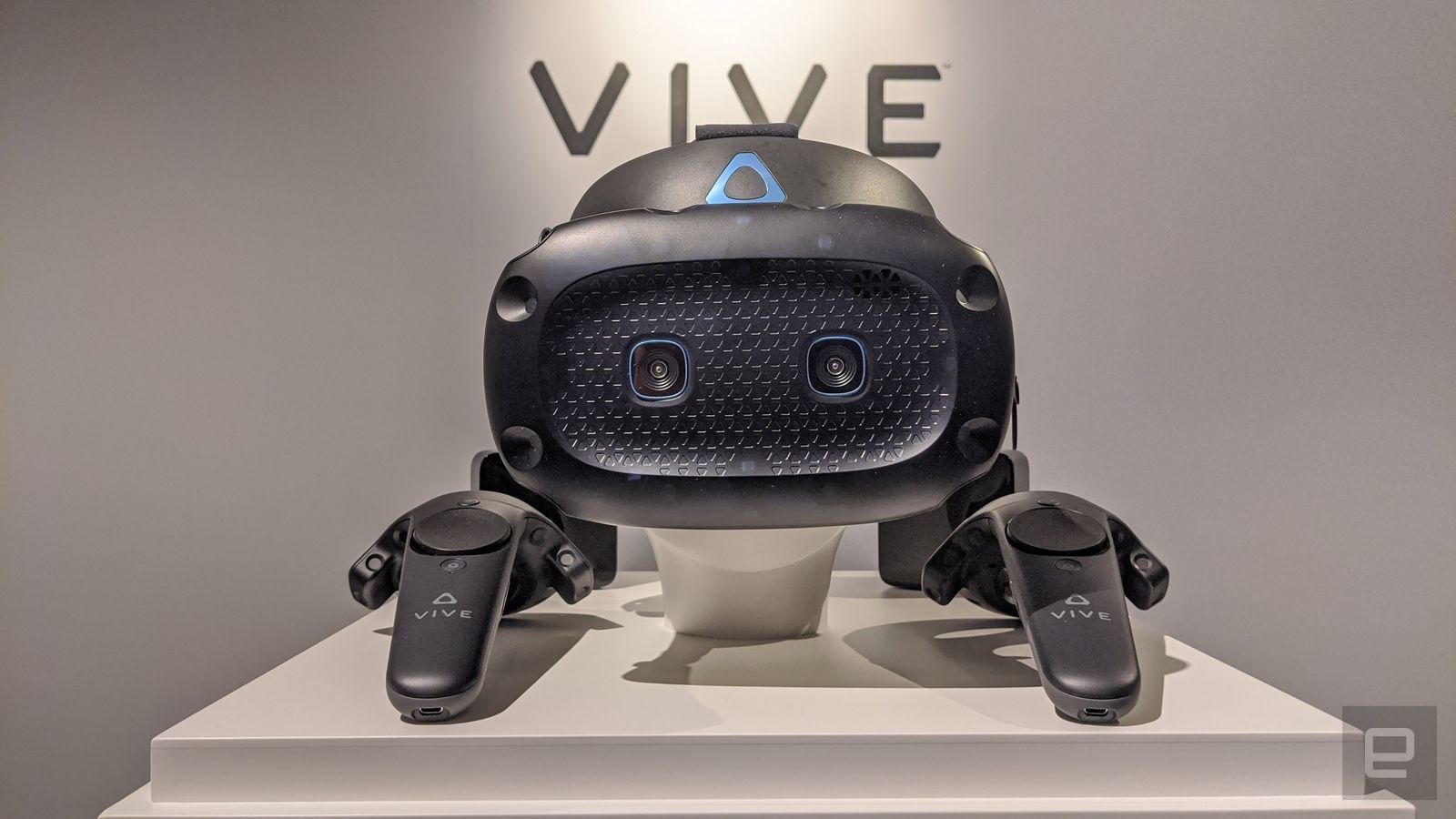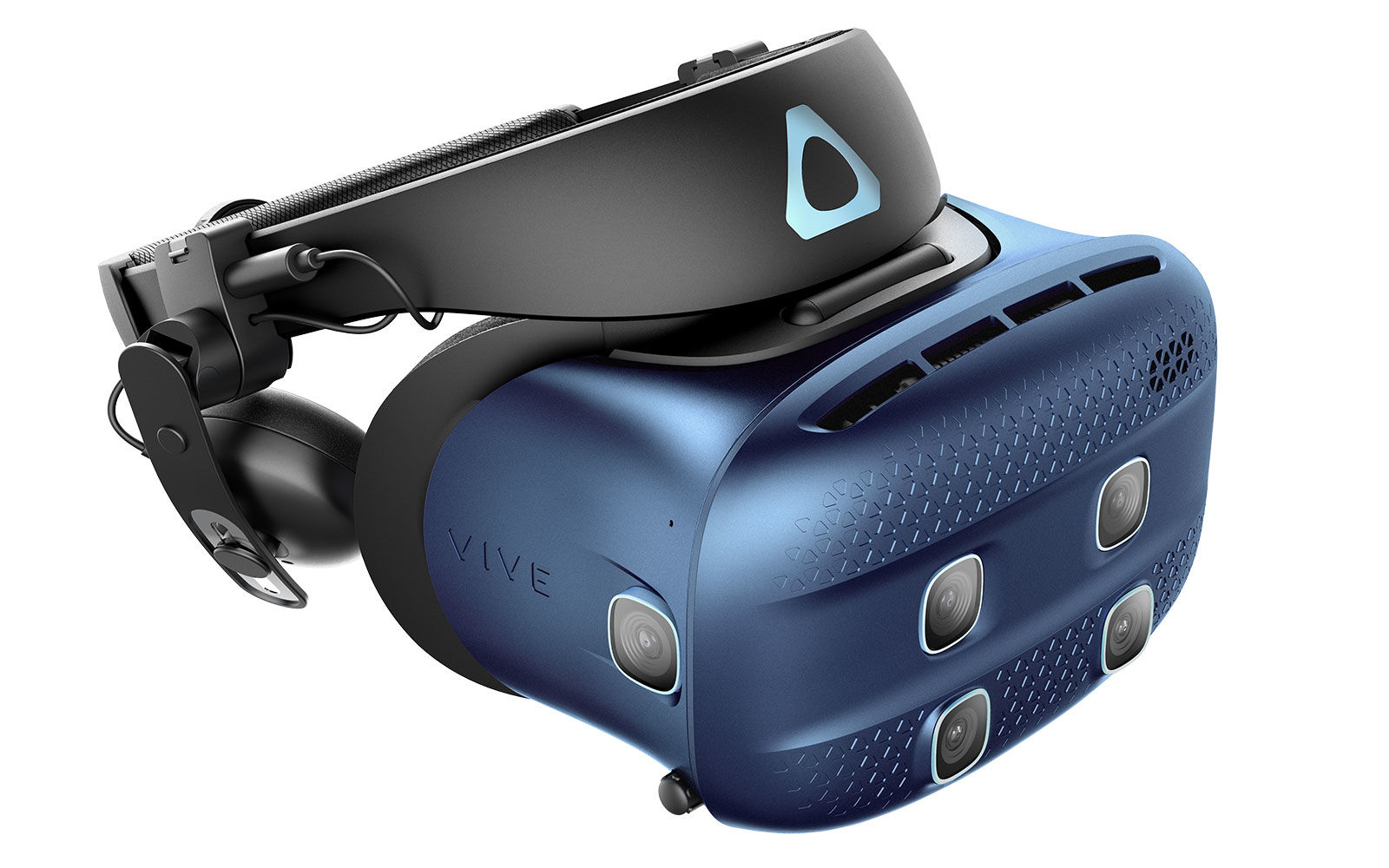Starting off with the entry-level Vive Cosmos Play, eagle-eyed readers may already notice that this is the same design as the Cosmos in its teaser form back at CES 2019. Rather than packing six tracking cameras, the Cosmos Play only comes with four, so chances are there will be a slight drop in tracking performance. That said, HTC insists that this is still great for the likes of Viveport Video and Angry Birds VR. Another trade-off here is the lack of built-in headphones, but you can always just plug your own ones in.

Fortunately, you still get the same 2,880 x 1,700 LCD with a 110-degree field-of-view and 90Hz refresh rate, making it “the best VR display I’ve ever seen,” according to our very own Devindra Hardawar. Likewise, the headset has kept the flip-up visor, which is particularly handy for those who are trying VR for the first time. This is why the Cosmos Play is aimed at the likes of education, art and museum environments. It’s also worth mentioning that you’ll still be able to add the Vive Wireless Adapter to any of the headsets across the Cosmos family, though the target audience for the Cosmos Play may not go this far.
Sadly, there’s no word on pricing nor date just yet, but here’s hoping the bundle — with two Cosmos controllers included — will cost somewhat closer to the $400 price point offered by HTC’s main rival.

Next, we have the Vive Cosmos Elite, which is clearly made with gamers in mind. Rather than using the Cosmos’ inside-out tracking, the Elite’s headset comes preinstalled with an External Tracking Faceplate (the same one HTC teased back in September) that can be paired with both generations of SteamVR base stations for higher precision. The Elite bundle includes two 1.0 base stations along with a pair of Vive controllers plus built-in headphones, and it’ll cost NT$29,900 when it launches later this quarter (this is around US$990; US local price will likely be lower). You can pre-order from February 24th and get two months of free Viveport Infinity subscription.
In the following quarter, existing Cosmos owners can also upgrade with the External Tracking Faceplate for NT$6,600 (about $219) per piece, but they’ll obviously need to source the base stations and Vive or Vive Pro controllers as well. This upgrade path makes sense to those who own a Vive kit and a Vive Cosmos, as the latter would then add a sharper display plus a handy flip-up visor to the sturdy motion tracking experience.

Last but not least, we have the Vive Cosmos XR which, as the name implies, is designed to bring mixed reality experience to a VR headset. This business-focused faceplate is essentially the Cosmos Play (so just four tracking cameras) with two additional high-resolution passthrough cameras on the front, which apparently deliver passthrough field of view of up to 100 degrees. That’s a lot higher than the field of view on the current crop of mixed reality headsets like Hololens 2 and Magic Leap, thus making VR collaboration more versatile, especially when you want to check out virtual objects in the real-world environment using the Vive Sync collaboration platform.
But then again, considering how those mixed reality devices offer real-world vision instead of mixing that onto a display, there are certain benefits that the Cosmos XR may not be able to provide. We have to assume that there’s bound to be some latency between the real world and the version rendered in front of our eyes. We shall see what the developers say when they get hold of the developer kit in Q2 this year, and more info about this upcoming device will be released at GDC in March.



